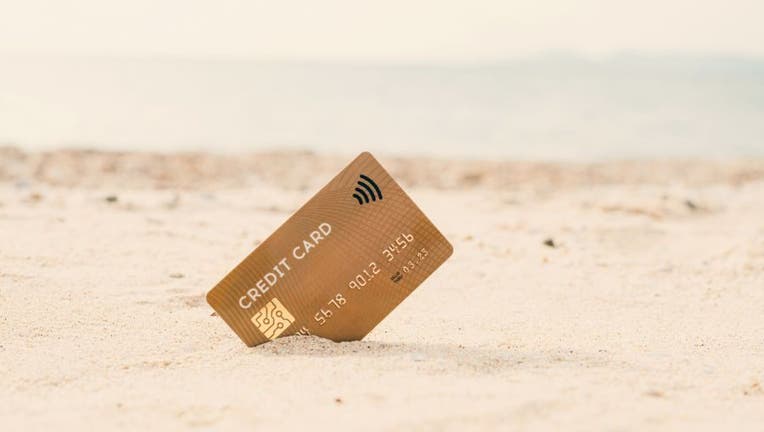What to do with airline and travel credit cards amid coronavirus

With air travel on a downward flight path these days, it’s time to decide what to do with airline and travel credit cards. (iStock)
With so many Americans canceling travel plans due to the coronavirus pandemic, what will credit card consumers do with their travel and airline rewards points?
No doubt, U.S. adults are shying away from travel during COVID-19. According to a recent Harris Poll, just 33% of Americans say they’ll stay in a hotel and 28% say they’ll avoid flying until the pandemic clears – whenever that might transpire.
In the meantime, how should credit cardholders handle their travel and airline rewards points and perks – whether they plan to fly or not? Credit card experts have a few thoughts on that topic, with these strategies making their way to the top of the travel and airline “to do” list:
Take advantage of new card offers
For the most part, travel-heavy cards have added additional bonus categories, and cardholders should take a closer look. Credible can help give you an overview of the cards and what's available.
“The new offers focus on spending for folks working from home, those ordering online, those eating in more, and utilizing streaming services, for starters,” said James Larounis, travel industry analyst at UpgradedPoints.com. “For example, one major credit card normally has a $300 a year travel credit, which is now expanding to include grocery shopping. The card’s annual fee has also been lowered to $450 for renewals, allowing folks who aren’t traveling to access benefits at a lower price.”
When beating the bushes looking for a new rewards card, leverage card comparison platforms like Credible, where you can instantly compare many rewards credit cards with a single visit.
SHOULD YOU GET A HOTEL CREDIT CARD?
Keep the card open
There are a few ways to avoid issues for a while – at least until travel opens up again and the plastic perks prove valuable.
“For example, if a credit card has no annual fee, don’t close it,” said Brandon Neth, a credit card and award travel expert at Finance Buzz, an online personal finance platform. “Just be sure you use it once per quarter to keep it active so the bank doesn’t close it for you.”
If the card has an annual fee that exceeds the value you’re getting from it, you can simply change it to another card from the same provider with no annual fee. “If this isn’t an option, ask the card issuer for a retention offer,” Neth said. “This usually covers the annual fee.”
Here’s what you need to know about annual fee credit cards to get started.
HOW TO CHOOSE YOUR SECOND CREDIT CARD
Keeping your rewards card open also keeps new benefits in play. By visiting Credible, users can quickly compare the best credit cards that meet their needs.
“For example, cardholders who now have a new limited-time benefit, like a $300 annual travel credit that’s now applicable at gas stations and grocery stores (in addition to travel purchases) until the end of the year, can leverage those rewards,” said Ben Walker, a travel and credit cards writer at Finance Buzz.
Keep an eye on your credit score
Closing any credit card – not just a travel credit card – can negatively affect your credit score.
“That’s because closing a credit card account lowers your total available credit limit and can lower the average age of your credit history,” said Steven Dashiell, credit cards expert at Finder.com. “Both of these play an important role in your credit score.”
Generally, providers and credit bureaus look at the percentage of credit you’re using over time as an indication of how well you’re managing your finances.
5 FACTORS THAT AFFECT YOUR CREDIT SCORE
“You’ll often hear this called your credit utilization ratio,” Dashiell said. “Keeping that percentage to 30% or less is the ideal. If you’re using more than 30% of your total credit available on a regular basis, your credit score might start dropping. Closing a credit card account naturally lowers your total available credit.”
“So where you once might have used 25% of your total available credit, that number could jump up to 30% or more depending on the credit limit of the account you closed,” he said.
What about credit card churning?
Credit card churning – the practice of regularly applying for new accounts just to earn their sign-up bonuses – is allowed right now, but likely isn’t a good idea.
“Credit card churning is rarely worth the time and effort,” said Stephen Weyman, co-founder of Canada-based creditcardGenius.ca, a credit card advisory site. “Most welcome bonuses that are worth getting are for cards with high annual fees, and usually require a high minimum spend to earn the reward.”
Additionally, any time you apply for, use, and cancel a credit card, this will have a negative impact on your credit score. “Churn enough cards, and you’re risking taking on an unmanageable amount of high-interest debt while simultaneously chipping away at your credit score,” Weyman added.
Stay patient with your rewards credit cards
Credit card companies know people aren’t traveling, so they’re taking aggressive steps to ensure consumers keep their rewards cards.
“Folks are spending money on essentials, though, so having options to earn more rewards on these everyday purchases is very helpful. As long as you get value from travel cards, there’s no point in canceling or downgrading,” Walker said.

